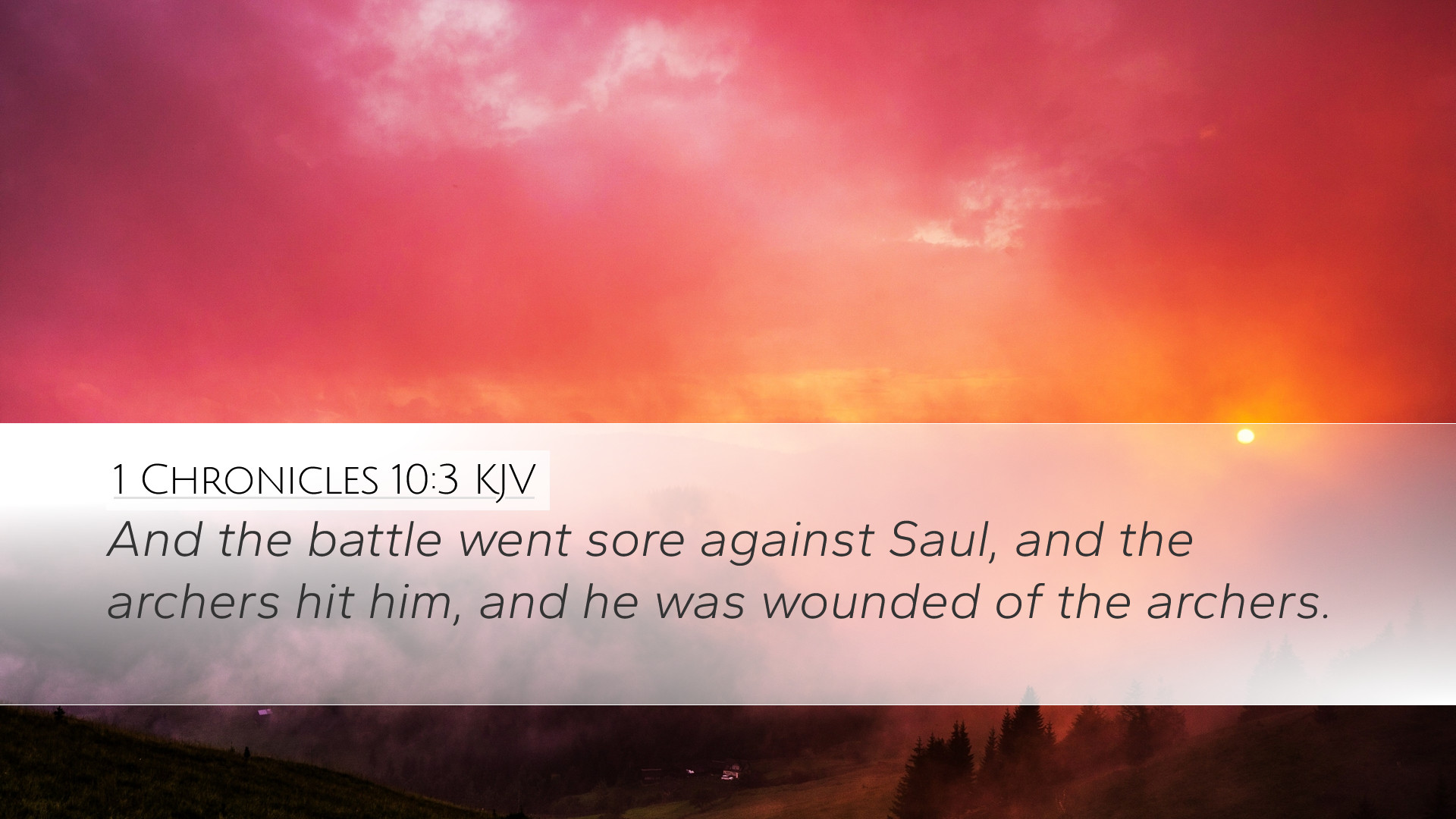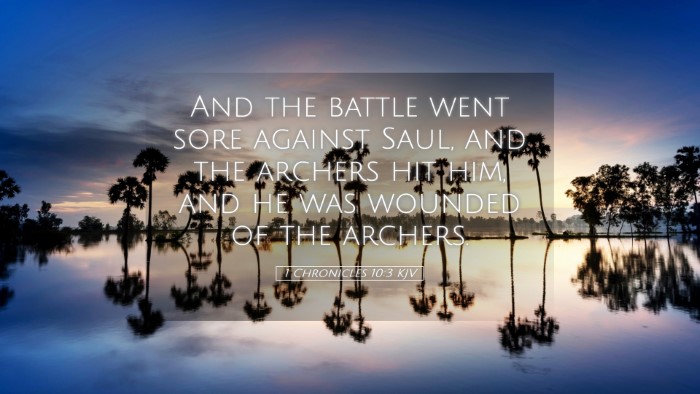Commentary on 1 Chronicles 10:3
Verse: "And the battle went sore against Saul, and the archers hit him; and he was wounded of the archers."
Introduction
This verse marks a pivotal moment in the narrative of Saul, the first king of Israel. The context demonstrates the inevitable decline of Saul’s leadership and the tragic consequences of his disobedience to God. Commentaries from Matthew Henry, Albert Barnes, and Adam Clarke provide rich insights into the theological, historical, and practical implications of this event.
The Context of 1 Chronicles 10
Historical Background: The passage lies in a section where the Chronicler recounts the events leading to Saul's death, which is significant in understanding the transition from Saul to David.
Theological Themes: This verse highlights themes such as divine judgment, the consequences of sin, and the sovereignty of God in Israel's history.
Commentary Insights
Matthew Henry's Perspective
Matthew Henry emphasizes the seriousness of Saul's situation, noting that the battle was fierce and that Saul’s wounds reflected not only physical damage but also a spiritual defeat. Henry describes how Saul's earlier decisions, particularly his disobedience to God, led to this moment of hopelessness.
- Consequences of Disobedience: According to Henry, Saul's disregard for prophetic instruction culminated in his downfall.
- The Role of Providence: Henry suggests that even in the depths of despair, God’s providential hand was at work, fulfilling the prophecies concerning Saul's reign.
Albert Barnes' Analysis
Albert Barnes provides a detailed exegesis of the phrase "went sore against Saul," indicating that the severity of the battle pointed to God’s judgment due to Saul’s rejection. Barnes draws upon historical texts to illustrate the psychological state of Saul leading up to this moment.
- Archers and Their Significance: Barnes notes that archers represent external pressures and threats, highlighting the multifaceted nature of Saul's conflict – not just militarily, but also spiritually.
- Interpretation of Wounds: The wounds inflicted upon Saul are symbolic of the consequences that follow a life lived against God's will.
Adam Clarke’s Commentary
Adam Clarke offers a theological lens, dwelling on the significance of verse 3 in the wider narrative of Scripture. Clarke proposes that the description of Saul’s injury is not only historical but also serves as a reflection on the human condition – frailty and the inevitability of divine justice.
- Theology of Warfare: Clarke discusses the implications of divine judgment executed through physical combat, noting that God uses nations and individuals as instruments of His will.
- Reflection for Believers: He concludes with a call for believers to remain vigilant and obedient, warning that God’s protection withdraws when one strays from His path.
Practical Applications
For pastors, students, theologians, and scholars, 1 Chronicles 10:3 offers profound reflections on leadership, obedience, and the nature of divine judgment:
- The Danger of Disobedience: The example of Saul serves as a cautionary tale for leaders about the necessity of adherence to God’s commands.
- Suffering and Sovereignty: Understanding suffering as part of God’s plan can offer hope and clarity in ministry contexts.
- Historical Importance: The chronicler’s focus on these events highlights the importance of divine providence in the unfolding story of Israel, encouraging deeper historical contextualization in teachings and studies.
Conclusion
The examination of 1 Chronicles 10:3 through the lenses of several esteemed commentaries enriches our understanding of this significant passage. It calls for introspection regarding our obedience to God and the implications of our leadership choices. In reflecting on Saul’s tragic end, we are reminded of the weight of divine judgment and grace available in Jesus Christ for those who choose to follow Him.


